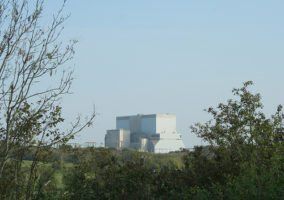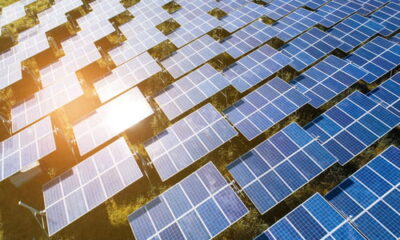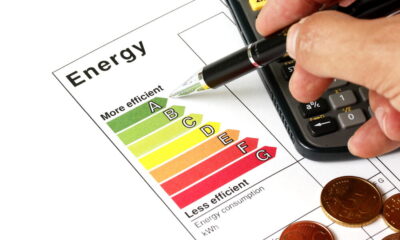

Environment
ECIU Comment On Hinkley Point Approval
Richard Black, director of the Energy and Climate Intelligence Unit (ECIU) has commented on the revelation that the Government has decided to go ahead with a new nuclear power station at Hinkley Point in Somerset [1], and stated that more hurdles remained for the project.
He said: “Despite this being called a ‘final decision’ to build Hinkley C, other hurdles, including technical and legal challenges, may well lie ahead for the project,” he said.
“French trade unions don’t like it, nor do some of the likely candidates for the French Presidential Election next year, EDF’s finances are not the healthiest, and the French nuclear regulator is examining flaws in steel used for a similar reactor being built in France. So it may turn out not to be quite as ‘final’ as it looks now.
“Although China is reportedly happy with the new position, questions also remain over its main ambition – building its own nuclear reactors at Bradwell in Essex as a route into the Western market. The Chinese reactor hasn’t even begun the process of gaining UK safety approval, which usually takes four years, so negotiating a contract for Bradwell would fall to the next UK Government, not this one. By then, electricity from other sources might look a whole lot cheaper than it does now.”
ECIU energy analyst Dr Jonathan Marshall said that other parts of the UK’s energy mix needed similar certainty from the Government.
“If Hinkley does get built it will undoubtedly make a significant contribution to delivering the UK’s low-carbon power, but at a hefty premium to bill-payers in this generation and the next,” he said.
“Now the decision is done, one assumes that the Government will turn its attention to delivering similar certainty to other parts of the low-carbon energy system, notably offshore wind, tidal power, energy efficiency and demand-side response.
“Another thing for it to consider is whether the Hinkley model of bespoke, one-off deals with preferred bidders is really the way it wishes to do business; a more free-market approach, with genuine competition between low-carbon providers which also rewards innovation rather than incumbency, is surely the way to go.”
Responding to the government’s announcement to spend £18bn on a new nuclear plant at Hinkley Point in Somerset, Simon Bullock, senior climate campaigner for Friends of the Earth said:
“Hinkley is a project from a dying era, which would saddle Britons with eye-watering costs for decades, and radioactive waste for millenia.
Renewables, smart grids and energy storage are the fleet-footed mammals racing past this stumbling, inflexible nuclear dinosaur.
“The PM should act in Britain’s interests and invest in a renewable, non-nuclear electricity grid – it will give us more jobs and less pollution, at lower cost. This is blatantly the wrong decision from the PM.”
Downing Street is expected to announce today that they have given the green light to the Hinkley Point nuclear deal with EDF and Chinese General Nuclear Power Corporation. The deal will see a new type of nuclear reactor built in Somerset with the project being dogged by setbacks since it was first discussed when Tony Blair was Prime Minister.
Friends of the Earth Scotland’s Director, Dr Richard Dixon, said:
“Building new nuclear plant at Hinkley Point and committing to pay EDF twice the current energy price for the next 35 years is a colossal waste of public money. Our grandkids will still be paying it off and for generations to come people will be living with the toxic legacy of nuclear waste.
“We should instead investing in renewables and energy efficiency that can provide the safe, flexible, decentralised energy we need now and in the future. Going for green energy would be cheaper, faster and safer than continuing to chase the nuclear dream.
“Once the deal has been signed comes the truly difficult part of actually building the plant. This type of reactor design has never been successfully completed anywhere with EDF’s two other projects in Finland and France well over budget and behind schedule. It is quite possible the Hinkley Point reactors will never produce a single electron.”
Responding to the government’s decision on Hinkley Point David Nussbaum the Chief Executive of WWF-UK commented:
“If the Government is happy to commit that amount of public money to subsidise this project, we would expect them to do the same for renewables.”


 Environment12 months ago
Environment12 months agoAre Polymer Banknotes: an Eco-Friendly Trend or a Groundswell?

 Features11 months ago
Features11 months agoEco-Friendly Cryptocurrencies: Sustainable Investment Choices

 Features12 months ago
Features12 months agoEco-Friendly Crypto Traders Must Find the Right Exchange

 Energy11 months ago
Energy11 months agoThe Growing Role of Solar Panels in Ireland’s Energy Future




























